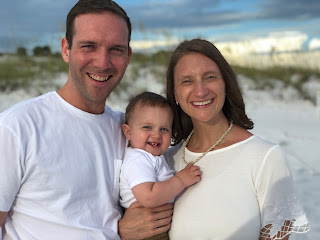 |
| Knock, knock... Who's there?... BANANA! |
This sermon was preached
on the 13th Sunday after Pentecost (Proper 15B) at St. John’s
Church. The readings which inspired the sermon were the following:
Me: Knock knock.
Congregation: Who’s there?
Me: Banana.
Congregation: Banana who?
Me: Knock knock.
Congregation: Who’s there?
Me: Banana.
Congregation: Banana who?
Me: Knock knock.
Congregation: Who’s there?
Me: Banana.
Congregation: Banana who?
Me: Knock knock.
Congregation: Who’s there?
Me: Orange.
Congregation: Orange who?
Me: Orange you glad I didn’t say banana?
[Everyone laughs… okay not really.]
That is my favorite joke. And, it’s terrible, I know. I’ve loved
it for longer than I can remember. Its humor comes from—okay it’s not really
funny—but, if it were funny it would be funny because of its repetition. We may
think the same thing about the Gospel lessons we’ve heard over the last few
weeks. It is funny—but not really funny—because Jesus keeps repeating the same
thing over and over again. But why?
Why does Jesus say the same thing over and over again? We
have heard for the past four weeks (including today) that Jesus is the Bread of
Life, the Bread of Heaven, the Bread that will feed the World. So why must we
keep hearing this again and again? Why does Jesus keep overwhelming us with more
and more difficult passages about him and bread?
I can think of three reasons why someone would repeat oneself
over and over and over again. First, because one’s audience was not
listening—What? Second, because one’s audience did not get it—Huh? And third,
because what one was saying was just that important. Those reasons again—not
listening, not understanding, and too important. And, strangely enough I
believe this passage points to all three of these being true. Jesus said these
things because the people were not listening, they did not getting it, and what
he was saying was too important not to repeat. Let’s look at these three more
deeply.
When I was a kid I did not listen well. Almost always when my
mom spoke the first word out of my mouth in response was, “What?” Sorry mom. I
realized that I did not do a good job of really paying attention. It was not a
problem with my ears but rather my intention. Similarly those in Jesus’ day
were not intentionally listening to what Jesus said. We can even see this in
the way that Jesus and the religious folk spoke to each other.
Previously in the Sixth Chapter of John, allusions were made
to the story of Moses and the Israelites in the wilderness being fed by God
with manna—bread from heaven. In that Old Testament story the people grumbled
for flesh. Their words were give us the flesh. This is almost exactly what the
people said to Jesus today. We read it as “his flesh” but that was not what
they actually said—our translation makes an interpretation changing “the” to
“his.” Read this way it would say, “How can this man give us the flesh to eat?”
and it changes how we hear their words. Jesus though was talking about his flesh feeding them. The people were not
listening though, but why?
Those people who had been following Jesus around throughout
this chapter had been fed with actual bread from Jesus. Imagine how good that
bread was! I mean I know we love our communion bread here. And, if we were ever
to run out of communion bread our congregation might just revolt. They might
even throw back the wafers at me and tell me that Jesus did not eat chips! (Not
that that has ever happened.) So, those who followed Jesus around were fed by
him. They ate bread from heaven and they wanted more. Some though were not
listening for something more—they just wanted something to eat. And, even those
who were intentionally listening—those who weren’t just looking for something
to eat—might not have really understood what Jesus was speaking.
Jesus said what he said over and over and over again in part
because his listeners may not have understood what he really meant by what he
said. What we heard Jesus saying this morning could be construed in many
different ways. As we realized last week, Jesus does not want us to be
cannibals, but his words really do point to a physical reality. When he said he
was giving his flesh for the life of the world he signified to those listening
something that was about to happen.
Soon enough in Jerusalem Jesus would be betrayed, persecuted,
tortured, crucified, and killed. This really was him giving up his flesh. Still
there was more than one layer to what Jesus was saying—hence why it was hard
and is still hard to understand and why Jesus had to build up his teaching
slowly. Yes, there was this layer of what was actually happening, but what
about all the references to bread and eating this bread, his flesh? To eat his flesh
and to drink his blood as bread and wine certainly refers to Holy Communion,
but even in that is another mystical dimension that encompasses the physical,
the metaphorical, the spiritual, and even what is beyond our comprehending.
This truth, this reality was so important that Jesus said it
over and over and over again, which is that third reason why he repeated
himself. Still Jesus made a leap throughout this chapter in John. He leapt from
believing to eating. Those who believe will eat and those who eat will have
eternal life through their believing. Sure, again this refers to the reality of
sacramental grace that happens at the altar rail, but it also can and maybe
does happen at all times and in all places. For believing is not only about
eating, but also about consuming. It matters what we consume and also what
consumes us.
What do we consume? What do you consume? Not just what do you
eat, although that is interesting enough to think about, but what do you do
with your time, talent, and treasure? I invite you to take a few moments to
think about that this week by taking part in three practices: 1. Look at your
financial accounts. What do you consume with that money? When you get a
paycheck does the first dollar go to God’s work or to what you want? 2. Look at
how you spend your time. How much time does God get? When does that happen? Is
it first thing in the morning? Is it just some leftover time here and there
when you think about it? 3. Look at what activities, tasks, or events give you the
most energy and which ones drain you the most. Not always but often the things
that give us the most energy are areas where we have talent and when directed
towards God’s work in this world it can be powerful. Those areas are where we
find our purpose and where we find our calling. You might find some fit for
your calling today at the Rally Day Ministry Fair.
When you look at your life in these areas you might just see
what you consume with your money, your time, and your energy. But, what
consumes you? Often we think that heaven or the Kingdom of God are realities
that await us when we “awake” on the other side of the grave; however, I don’t
think that is the important thing that Jesus came to tell us. When the Body and
Blood of Christ consume us—not just the other way around—then we realize that
our entire lives—all our treasure, our time, and our talent—can be utilized for
the building up of God’s Reign here on earth. When we are consumed by Christ,
then everything works towards God’s purposes.
Each of us is called into the ministry of Christ. We are all
called to be members in the Body of Christ. All our stories fit into the Story
of God’s Love—the sharing of the Good News of Christ. And to be more a part of
all of this, God is calling us to be enveloped in Christ, consumed by the Body
and Blood of Christ.
We hear Jesus repeating his wisdom over and over and over
again because we might not be listening at first, and because we might not get
it all at once, and mostly because what we are hearing is so important. What we
believe matters. And what we believe can best be seen not in what we say
believe, but in looking at what we eat, what we consume. What do you consume?
What consumes you? May it be always and only the Body and Blood of Christ.
Amen.





